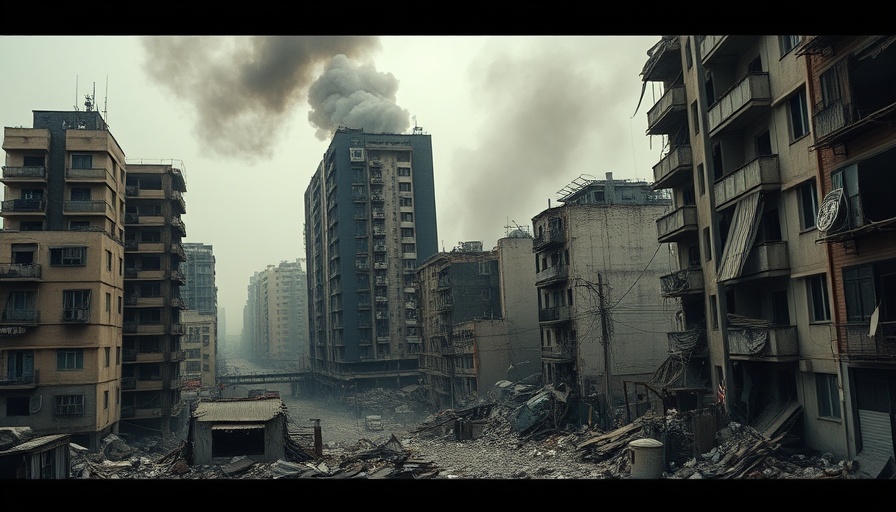
Iran's Response Following the Ceasefire: An Intensified Crackdown
In the wake of the recent ceasefire between Israel and Iran, the Iranian government has intensified its already oppressive measures against its citizens. With over 700 arrests made in just 12 days, the situation has escalated from military engagement to a chilling crackdown on civil liberties, leaving many to fear the regime's long-standing practices of silencing dissent through autocratic enforcement.
The Disturbing Reality of Executions and Arrests
Following the Israel-Hamas conflict that saw a swift aerial offensive, Iranian authorities have quickly shifted their focus inward. The government has resorted to executing individuals accused of 'espionage' while denying many basic rights such as fair trials and legal representation. Reports indicate that the rushed trials often rely on forced confessions extracted under duress, marking a grim chapter in Iran’s ongoing struggle for human rights.
New Legislation Fueling the Crackdown
On June 29, a new bill was hastily passed that categorizes any contact with Israel or perceived hostile states as 'corruption on earth,' which can result in the death penalty. Legal experts express deep concern that this law essentially becomes a blank check for the judiciary to impose capital punishments swiftly, leveraging the national crisis as a justification for heightened repression.
Inside Iran's Prisons: A Dismal Reality
The conditions in Iranian prisons have also worsened, particularly in facilities like Evin Prison, where reports indicate horrendous living conditions. Prisoners, including many who protested peacefully or advocated for human rights, face overwhelming despair amidst pest-ridden cells and contaminated water. Transfer to harsher prisons only adds to the anguish of detained individuals, many of whom are simply fighting for their rights or expressing their beliefs. Even the slightest act of dissent, such as a comment on social media, can lead to severe punishment.
The Spiritual Response Amidst Hardship
For many Iranian Christians and individuals from minority communities, these oppressive measures reflect an increasingly dangerous environment. As oppression escalates, a wave of prayer and spiritual resilience arises among the faithful. An Iranian Christian shared profound insights: "Through seasons of pain and trial, we have come to know the Lord more intimately. In the end, love is the loudest voice, and the most powerful witness." Such messages resonate deeply as they look for hope and peace amid dire circumstances.
The Call for Solidarity and Action
As we witness the situation unfolding in Iran, it is essential to offer support and prayer for those impacted by these injustices. Many individuals urge fervent prayer for the end of executions and for justice and mercy to prevail in the Iranian judicial system. We must also keep in mind the importance of raising awareness about these brutal practices and using our voices to advocate for those suffering.
Conclusion: The Power of Love Over Fear
Despite the harrowing acts of the Iranian government, there exists an undeniable spirit of resilience among its citizens, driven by faith, courage, and communal support. By uniting in prayer and action, we can stand in solidarity with those fighting for their freedoms and remind them that the transformative power of love can indeed overcome the pervasive fear and repression they encounter.
Please pray for:
- An end to executions, asking for justice to replace fear.
- Peace and protection for imprisoned individuals, particularly Christians.
 Add Row
Add Row  Add
Add 








Write A Comment